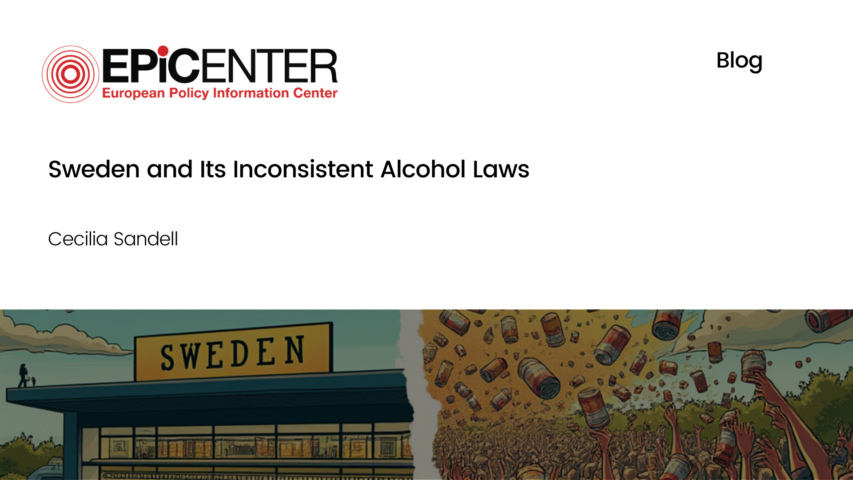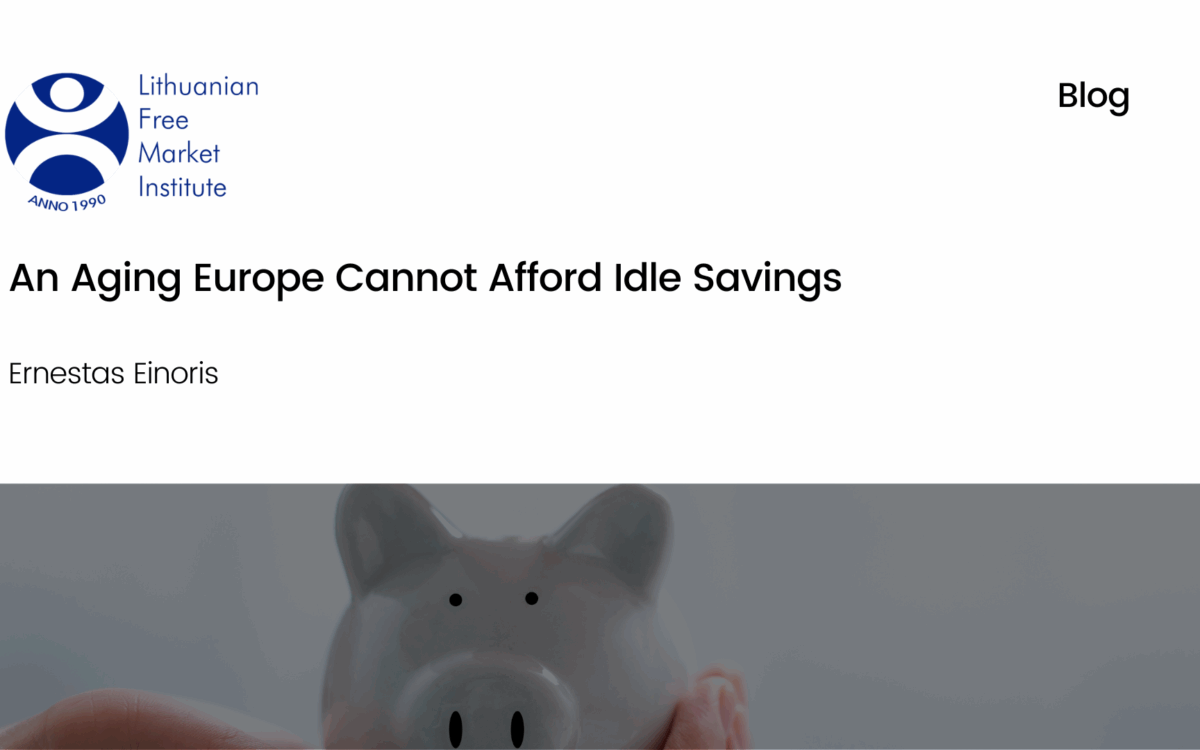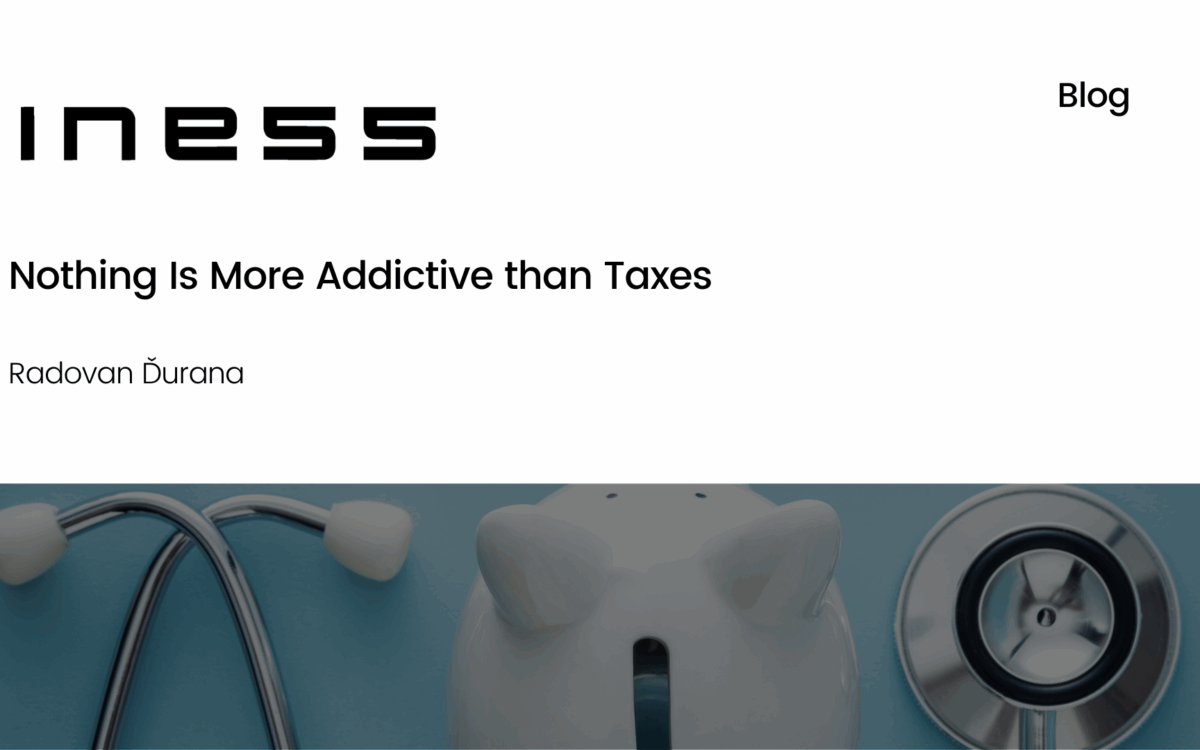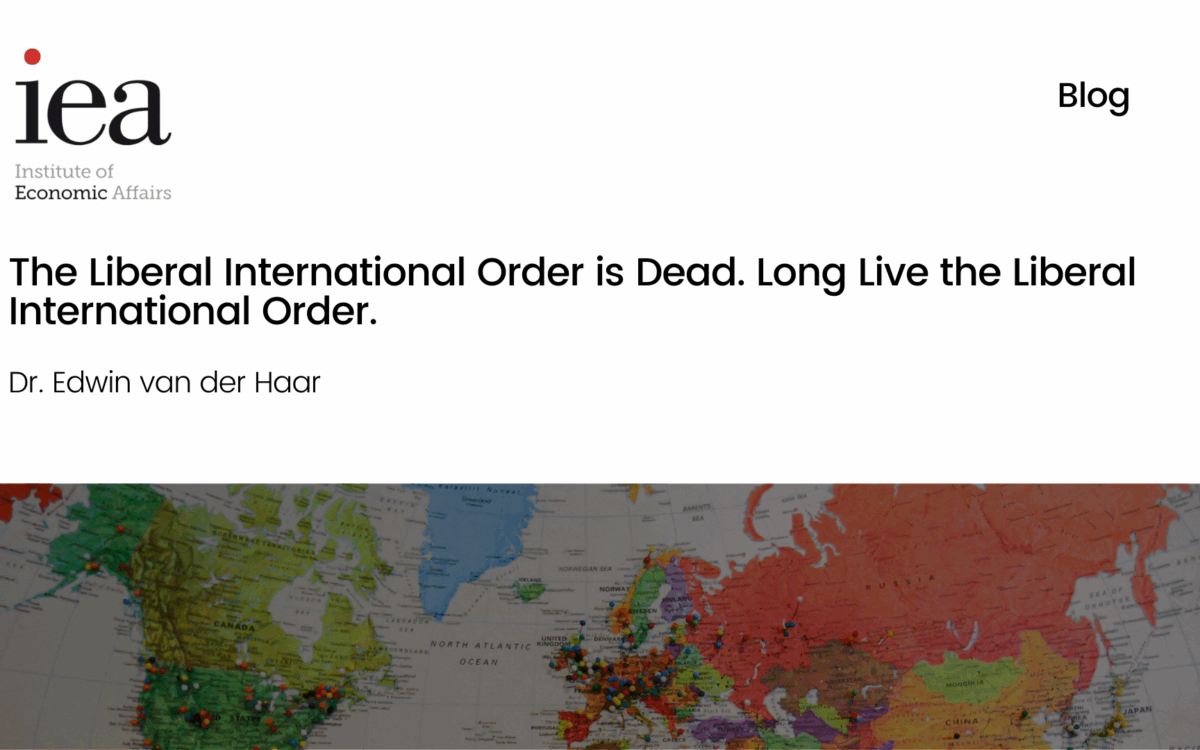Sweden and Its Inconsistent Alcohol Laws

Sweden and Its Inconsistent Alcohol Laws
Cecilia Sandell // 16 August 2017
On 29 June, EPICENTER’s Swedish partner, Timbro, published a report examining alcohol laws in Sweden. Within the Swedish political arena, alcohol consumption has always been a hot topic. At the beginning of the 20th century, high alcohol consumption led to strong state intervention, a very active temperance movement and a prohibition referendum. In 1917, the V&S Group, a state-owned company that had national monopoly over the production and distribution of alcohol for around 70 years, was founded. However, when Sweden joined the European Union in 1995, things started to change. A large liberalisation occurred. However, since then, this liberalisation process has been inconsistent.
According to the Timbro report, the regulations connected to the selling and the serving of alcohol hasn’t been reformed in the same liberal tradition as other alcohol laws. This study, written by Thea Andersson, discusses the role of the state in selling alcohol and highlights the problems surrounding the rules of the country’s serveringstillstånd (the liquor licence).
This specific alcohol licence is partially regulated at municipality level. The report argues that this regulatory framework has led to a highly disorganised approach in selling liquors: some restaurants are randomly rejected their licences; other restaurants are even not able to obtain their licences (or they arbitrarily lose it); and all the legal procedures are often too burdensome and irritating for these businesses. For example, in some municipalities, it is mandatory for places that seek to serve alcohol to have a kitchen equipped for a three-course meal even though many pubs or bars would simply prefer to serve alcohol alongside some lighter snacks. In other municipalities, instead, there are extremely strict rules in terms of restaurant layout and general staff training.
The EPICENTER Nanny State Index seems to confirm this situation. According to the study written by Christopher Snowdon, Sweden is the second most regulated country in Europe when it comes to alcohol consumption. At EU level, only Finland is considered to be more paternalistic. This is mainly due to the fact that Sweden has the highest spirits duty in the EU and one of the highest rates of beer and wine duty. Moreover, the country still has a state-run off-licence monopoly whilst the government keep banning alcohol advertising on TV and radio. As of today, only international channels are able to avoid these stringent TV rules. On top of this, outdoor alcohol advertising is also strictly prohibited.
Despite all of these heavy alcohol rules, the study underscores the liberalisation process that occurred in recent years. For example, the report highlights the fact that state monopolies in the manufacture, import and export of alcohol have all been broken down and that Sweden´s Systembolaget (state-run alcohol shops) now boast a greater selection of products than in the past. The 2017 Nanny State Index also shows that the country has much more liberal laws on food, soft drinks, tobacco and e-cigarettes. For example, there is no ban on cigarette vending machines and no retail display ban. Furthermore, Sweden is the only EU country in which snus, a smokeless tobacco product, can be bought thanks to an exemption it negotiated when joining the EU in 1995.
After examining the latest Timbro report and Nanny State Index it becomes clearer that Sweden´s laws on alcohol are inconsistent. Since 1995, many areas of citizens’ lifestyle have been liberalised but when it comes to the selling of alcohol rules are still strict. It is no surprise that for many cafes the serving of alcohol can be a real struggle. Interestingly enough, these stringent alcohol regulations are not aligned with the liberal laws on tobacco and e-cigarette.
Furthermore, Sweden has recently encountered a new problem – ice cream with alcohol. The ice cream Popsicle with 5% alcohol has been heavily debated since it came onto the market in 2015. The question is whether or not this product should be classified as an ice cream or a proper alcohol drink and if it can be sold either in supermarkets or only in the state-owned alcohol shops. Currently, the Swedish Minister of Health and Social Affairs, Annika Strandhäll, has ordered an investigation and a government draft bill is scheduled for late December 2017.
Thus, it seems that Sweden have to think hard about how to better approach the consumption of alcohol. Perhaps, the country should better look at its relatively liberal tobacco and e-cigarette laws. In fact, Sweden has one of the lowest smoking rates in Europe. With only an estimated 9% of the population smoking on a daily basis, tobacco laws might provide insight on how to design more coherent and consistent alcohol laws.
EPICENTER publications and contributions from our member think tanks are designed to promote the discussion of economic issues and the role of markets in solving economic and social problems. As with all EPICENTER publications, the views expressed here are those of the author and not EPICENTER or its member think tanks (which have no corporate view).



